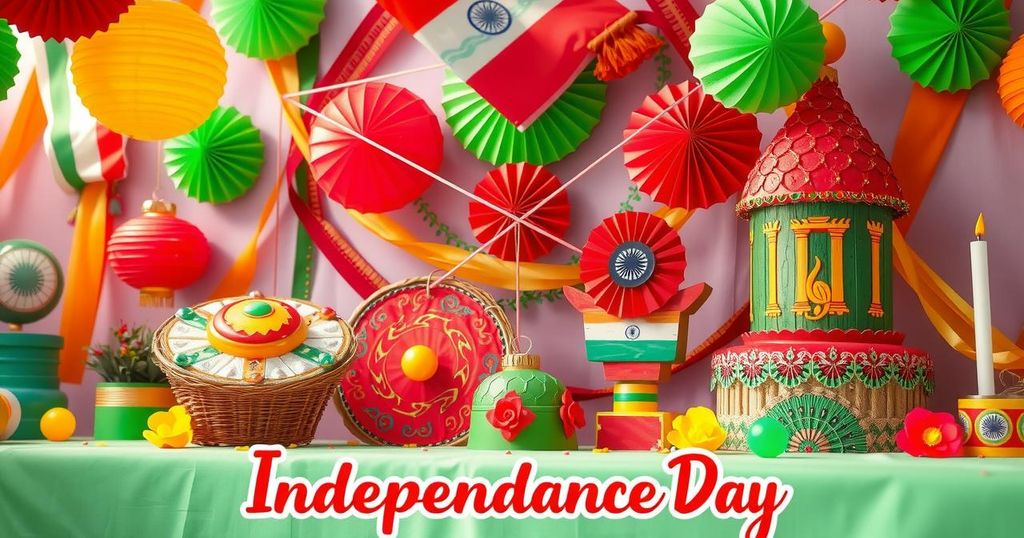Ghana’s 68th Independence Day celebration is significantly scaled back due to economic constraints, shifting from a grand event to a modest ceremony at Jubilee House. The participation is limited to over 500, illustrating the country’s economic struggles, including inflation and rising costs. While some citizens commend the government’s fiscal prudence, others criticize the downsizing of a cherished national tradition.
Today marks the 68th Independence Day of Ghana, traditionally celebrated with enthusiasm and national pride. This year, however, festivities are notably subdued, taking place at Jubilee House rather than the historic Black Star Square. This shift highlights the economic difficulties currently confronting the nation, as outlined by Felix Kwakye Ofosu, Minister of State for Government Communications, who cited financial constraints as the primary reason for the scaled-back event.
In contrast to previous years, which featured elaborate celebrations attended by thousands, this year’s ceremony will involve only a little over 500 participants, including security personnel and select schoolchildren. This significant reduction underscores Ghana’s pressing economic challenges, with the country facing high inflation rates, currency depreciation, and mounting public debt.
Many citizens are experiencing hardships due to increasing food prices, unemployment, and rising utility costs. This economic backdrop has prompted reconsideration of public spending; for reference, last year’s Independence Day celebrations cost GH¢15 million, a figure that has become unsustainable amid current economic strains. The Minister mentioned that this year’s costs would be only a fraction of last year’s expenditure.
The government maintains that these changes do not diminish the celebration’s significance. Kwakye Ofosu emphasized that President Mahama takes the day very seriously, affirming a commitment to honoring the occasion, albeit in a more restrained manner. Nonetheless, public sentiment is mixed; while some appreciate the government’s decision to be fiscally responsible, others feel that the importance of the national holiday should not be compromised, regardless of economic circumstances.
As Ghana marks 68 years since its independence from colonial rule, the atmosphere is one of reflection rather than celebration. Despite a muted event, the enduring spirit of independence, deeply rooted in the nation’s history, remains. Whether the government’s measures reflect a responsible approach to economic management or further highlight the country’s fiscal struggles remains a pertinent question.
Ghana’s 68th Independence Day, marked by a notably austere celebration, reflects the nation’s current economic realities. With significant reductions in both the scale and expenditure of the festivities, the event underscores the challenges facing citizens amid rising costs and inflation. Reactions vary among the populace, where some laud the fiscal prudence while others lament the erosion of a cherished tradition. As Ghana navigates these economic difficulties, the enduring spirit of independence and national pride continues to resonate, though tempered by the circumstances of the day.
Original Source: www.myjoyonline.com






